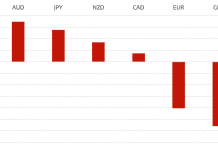By definition, hedge funds are a vehicle for making money in bear markets as well as bull markets. However, the methods used to achieve this end vary greatly from one fund to the next, and a strategy that is very successful one year might not be effective the next.
This is why a portfolio approach to investing, whereby you spread the risk across a range of complementary investments, is always highly recommended. So, all things being equal, if one or two of your investments are losing money the profits from the other ones should make up for these losses.
Maintaining a balanced portfolio of investments, however, takes a fair bit of work, and not every investor has the time – or the acumen – to be able to pull this off successfully. That’s where the concept of a fund of hedge funds can come in useful. A fund of hedge funds is essentially a collective investment in a number of different hedge funds, with the investors taking a share in the profits and losses of each.
This strategy, known simply as ‘fund of funds’ can be applied to any investment fund type, including mutual funds and private equity funds. Basically, a fund of this type holds a portfolio of fund investments, rather than direct investments in securities such as bonds, equities, derivatives, or commodities.
A fund of hedge funds follows this strategy, constructing a portfolio of other hedge funds. The criteria for choosing the underlying funds varies from one fund to another, for example investing only in hedge funds that follow a particular strategy, or investing in funds that use a variety of strategies in order to gain exposure to all of them.
What you gain from an investment in a fund of funds, as opposed to a fund that invests directly in securities, are diversification and experienced management. It’s like getting somebody that knows a lot more about finance than you do to put together a portfolio for you. If the portfolio manager is good at what they do, this can increase the potential for returns while decreasing the potential risk by spreading it across several hedge fund investments.
One of the main barriers to hedge fund investment is the minimum investment amounts, which are frequently north of $1 million. To invest in five such funds – thereby achieving a reasonable degree of diversification – you would need a minimum of $5 million to invest. However, by investing in a fund of hedge funds, you could gain exposure to the same five hedge funds with a single $1 million investment – or maybe even less.
Some funds of hedge funds don’t take a portfolio approach at all, investing in just one hedge fund, and offering shares at a much lower initial investment amount than the underlying fund does. What this does is lower the bar for investing in elite, top-performing hedge funds with very high entry requirements.
There is one significant downside to investing in funds of hedge funds, and that is the fact that you will be paying two sets of fees. As well as the fees charged by the management firm behind the fund of hedge funds, you also have to pay (indirectly) for the fees charged by the underlying hedge funds, typically 1-2% of the annual total of assets under management with a performance fee of 15% to 25% of the profits from the fund. So, a fund of hedge funds would have to significantly outperform a single hedge fund in order to provide the same net returns to the investor. However, portfolio managers would argue that the higher risk-adjusted returns that funds of hedge funds offer more than compensate for the incremental fee structure.
So, if you are looking to leverage the high potential returns of hedge funds, with a degree of diversification in order to limit risk, then funds of hedge funds could prove to be an elegant solution. What they do is make heavyweight hedge fund investment much more accessible to a wider range of investors, with lower minimum investments and less effort required to manage a diversified portfolio. However, before you invest in a fund of hedge funds, you should be sure to investigate just how big a bite the fees are going to take out of your profits.
I am a writer based in London, specialising in finance, trading, investment, and forex. Aside from the articles and content I write for IntelligentHQ, I also write for euroinvestor.com, and I have also written educational trading and investment guides for various websites including tradingquarter.com. Before specialising in finance, I worked as a writer for various digital marketing firms, specialising in online SEO-friendly content. I grew up in Aberdeen, Scotland, and I have an MA in English Literature from the University of Glasgow and I am a lead musician in a band. You can find me on twitter @pmilne100.










































